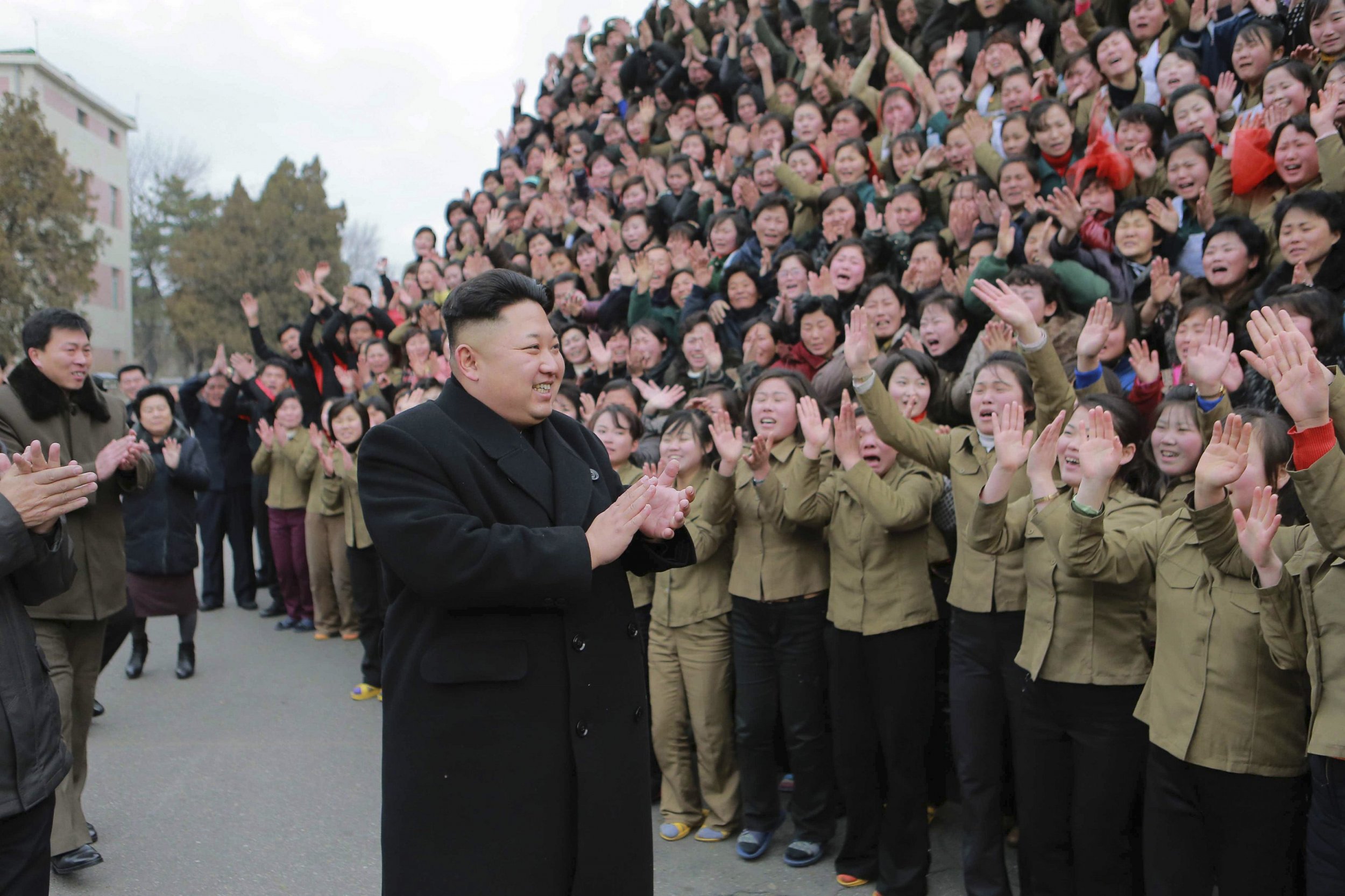
With Pyongyang in the headlines, the United Nations Security Council is slated to debate, for the first time ever, the appalling human rights conditions in North Korea.
The council, a top U.N. body that can impose punitive measures on violators of its resolutions, has in the past responded to North Korean activities relating to arms proliferation, but it has never touched on the goings on inside the country until now. While the council is not expected to take any action, such as imposing new sanctions, on Monday, or even unite behind a statement, adding the new item to the council's agenda could serve as prelude to punitive action in the future.
The Monday briefing, titled "The Situation in the Democratic People's Republic of Korea," comes as Pyongyang and the United States exchange heated accusations over cyberattacks, and as Sony Corporation contemplates whether and how it should release a film, The Interview, about a plot to assassinate North Korean leader Kim Jong Un.
The U.N. Under Secretary General for Political Affairs, Jeffrey Feltman, and Assistant Secretary General for Human Rights, Ivan Simonovic, are expected to brief council members in the Monday afternoon session, followed by what are expected to be heated speeches by ambassadors of the 15 council members. The North Korean U.N. ambassador, Ja Song-nam, may address the council if he chooses to do so.
The gathering was initiated by Australia, which completes a two-year stint as one of the 10 non-permanent council members at the end of the year. Diplomats familiar with the situation say China may oppose addressing internal matters in North Korea in the council. But China, North Korea's closest ally, can not prevail in a procedural vote to block the briefing, as 10 council members have co-sponsored the proposal to conduct the briefing session. That is more than enough to override China's objection.
Earlier this month the U.N. General Assembly voted overwhelmingly to recommend that the Security Council refer unnamed North Korean officials to the International Criminal Court in the Hague for committing alleged crimes against humanity. Pyongyang is not a signatory to the Rome Statute, which has created the ICC, and therefore only the Security Council can refer its officials to be tried there. Some council members may mention the assembly resolution today, and recommend that the council send the matter for trial in the Hague, but China would veto any such action.
The General Assembly vote, and Monday's council briefing, follow a report by a group of researchers, headed by a former Australian Supreme Court justice, Michael Kirby, on the humanitarian conditions in North Korean concentration camps and on other facets of the regime's violations of human rights. The stinging report, which was based on hundreds of interviews with defectors and eyewitnesses, recommended referring the North to the ICC.
Pyongyang has threatened unspecified retaliation after the General Assembly vote. Several diplomats confirmed that prior to the vote North Korean officials have proposed several ideas for cooperation with U.N. bodies, including an invitation for the high commissioner for human rights, Prince Zeid al Hussein, for a visit. But after the vote, North Korea clammed up and ended all such negotiations
Last week, Ja cited the Senate report on alleged torture of detainees by the CIA, in the aftermath of the September 11, 2001 attacks, as proof of widespread torture by the U.S. government. In a letter to the president of the Security Council, Ja also asked to place the issue on the agenda of the council.
Correction: This article originally quoted two tweets from @DPRK_News, a parody twitter account, and the two tweets have been removed.
Uncommon Knowledge
Newsweek is committed to challenging conventional wisdom and finding connections in the search for common ground.
Newsweek is committed to challenging conventional wisdom and finding connections in the search for common ground.
About the writer
To read how Newsweek uses AI as a newsroom tool, Click here.








